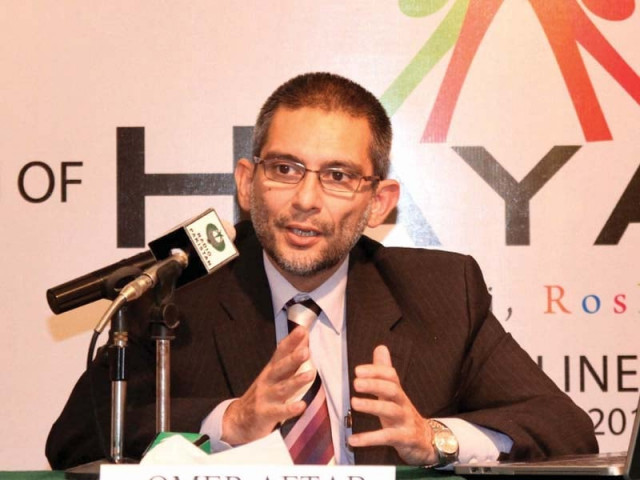NGO gets scholars on board to help teenage boys learn about growing up
He hoped that the information would prevent people from making the wrong decisions.

At a press conference organised by the NGO LifeLine, the views of prominent Islamic scholars, including Maulana Mufti Naeem, Maulana Ragib Naeemi and Maulana Aftab Hussain Jawadi, about the issue were presented. Despite belonging to different sects, all of them had reached a consensus on the issue.
LifeLine has launched a mass awareness campaign on reproductive health rights in Karachi. It has visited madaris across the country and mobilised support for its campaign. LifeLine’s CEO, Omer Aftab, said that his organisation wanted to strengthen ongoing projects on the issue rather than reinventing the wheel. According to LifeLine’s estimate, only 29 percent of the girls and 41 percent of boys in the country have access to information about puberty and hygiene.
“As a part of the campaign, pamphlets will be distributed among the common people, scholars will be urged to spread the message through lectures and television campaigns will also be aired,” he said. “We want to push for things that can be accepted in our society, not something which has simply been ‘copied and pasted’ from the West.”
Some religious scholars are not blind to the current social realities and lent a helping hand to LifeLine by endorsing its campaign and writing review papers on a number of related issues, including HIV, family planning, domestic torture and sexual health.

Aftab said because of a lack of information about sexual health provided to children, they could easily become victims of abuse.
Maulana Ragib Naeemi, who is from Jamia Naeemia in Lahore, iterated this point, saying, “If parents do not teach children about physical changes during puberty, who will?” He added that Islam teaches people about changes during puberty and also asks parents and teachers to guide children. Maulana Aftab Hussain Jawadi, from Islamic University, Islamabad, said awareness could stop the spread of sexually transmitted diseases.
The administrator of Jamia Binoria Al-Almia, Maulana Mufti Muhammad Naeem, highlighted the benefits and need for family planning. “It is legitimate in Islam for parents to mutually agree upon giving a gap between births of their children,” he said.
In his concluding remarks, Aftab said, “It is a wrong to believe that children would be involved in wrong deeds if they were given access to such information.”
Published in The Express Tribune, December 8th, 2012.


















COMMENTS
Comments are moderated and generally will be posted if they are on-topic and not abusive.
For more information, please see our Comments FAQ